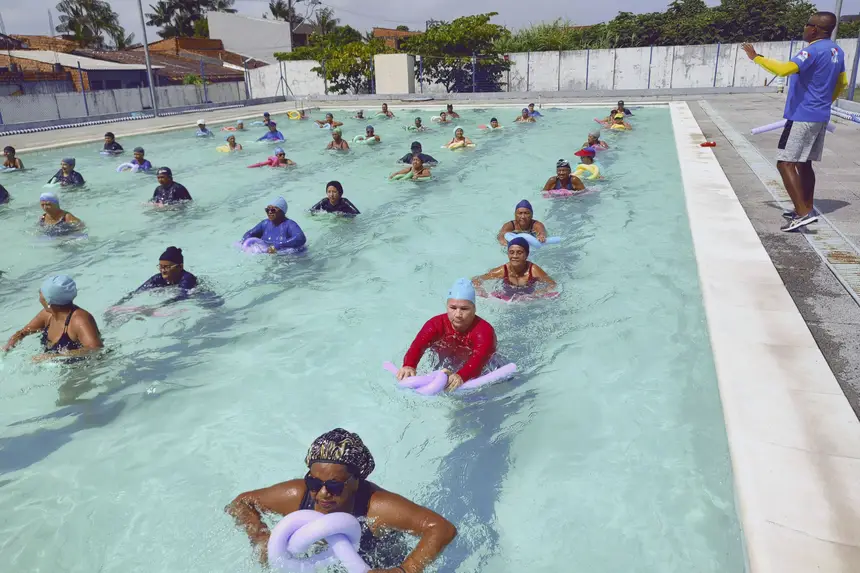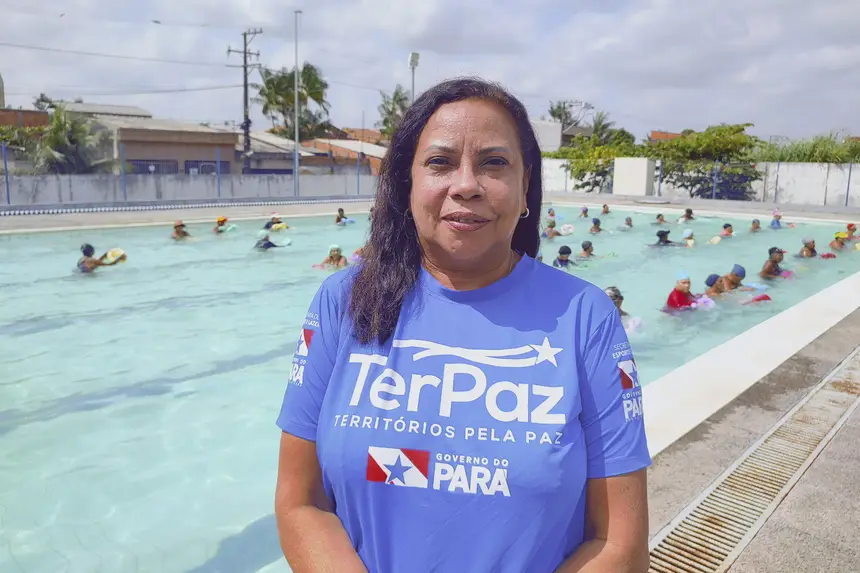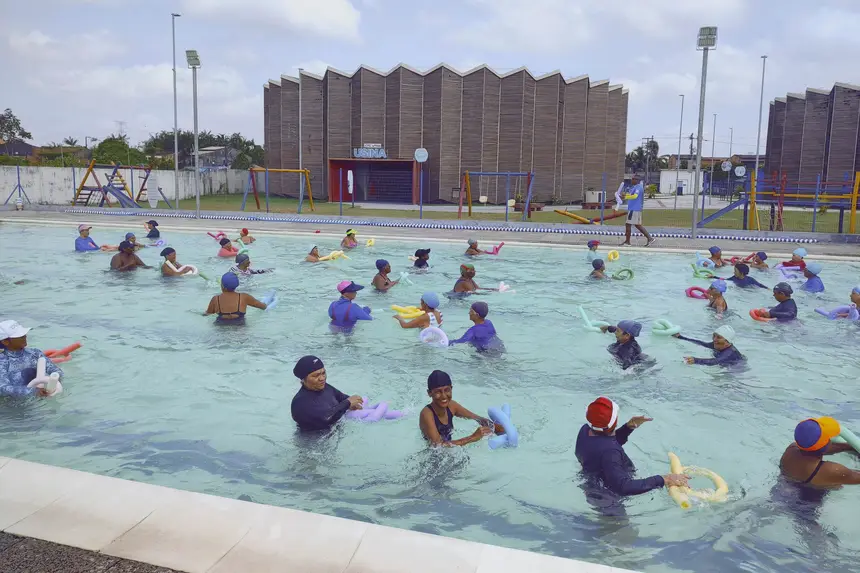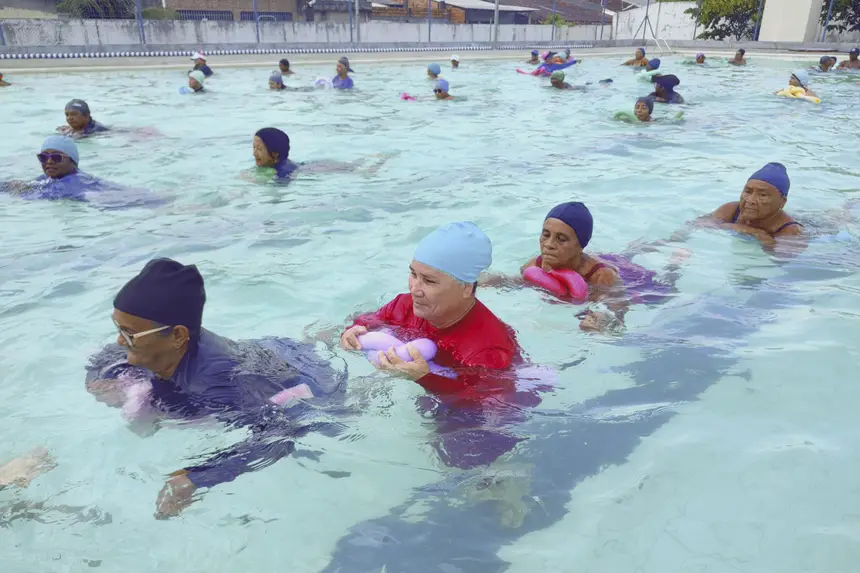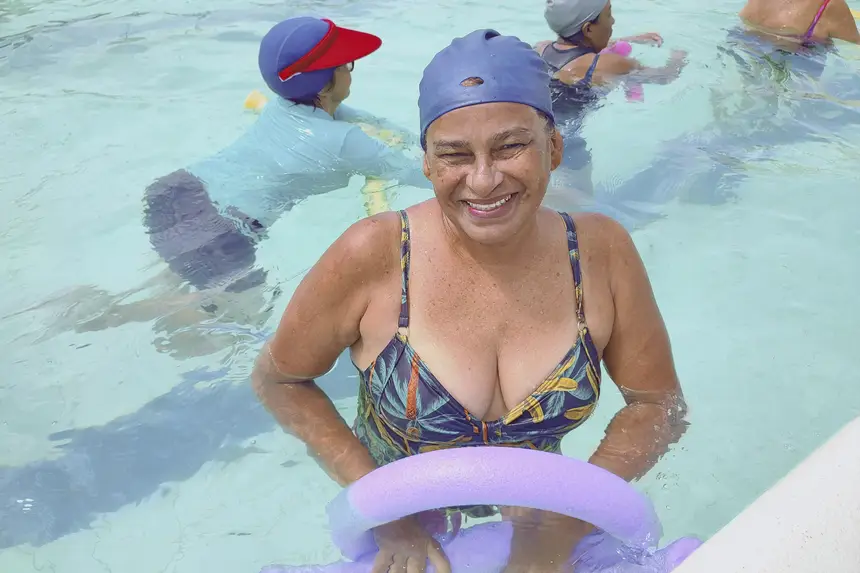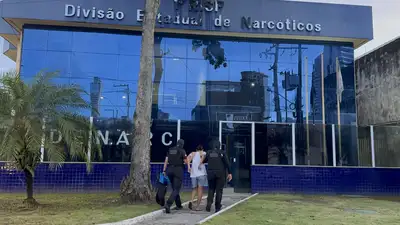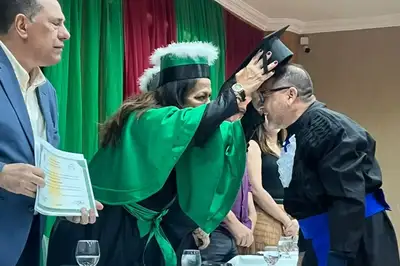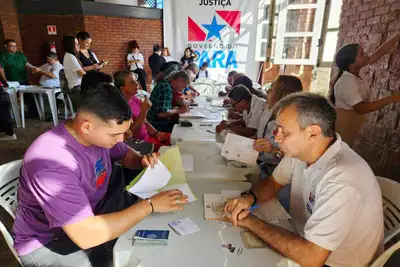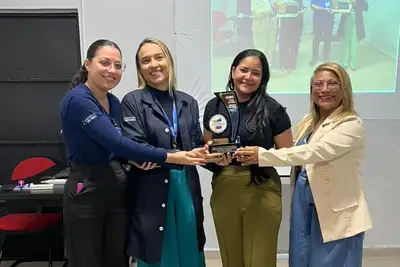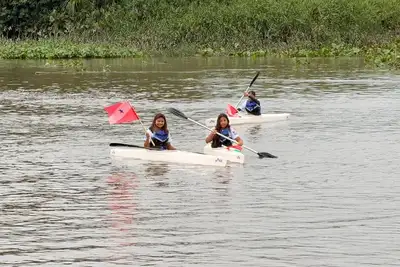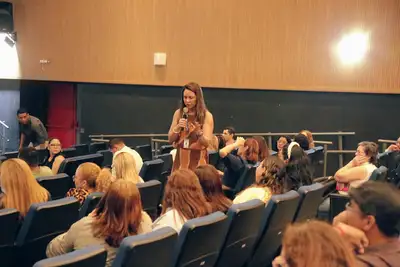Elderly Population Receives Special Attention from the Government of Pará
Focusing on health, education, citizenship, and protection, the State ensures rights and expands opportunities for those over 60 years old
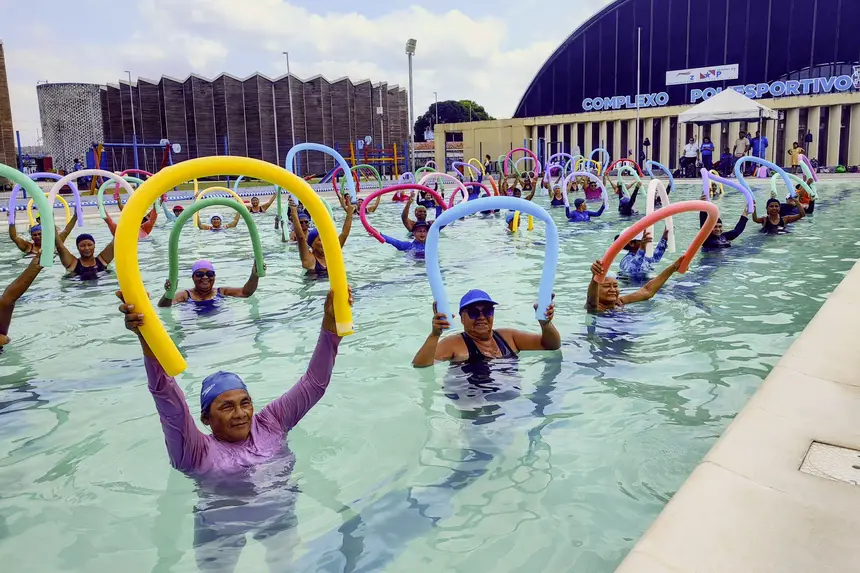
Between one exercise and another, retiree Maria Benedita do Vale, 64 years old, a student of water aerobics at the Usina da Paz in Cabanagem, in Belém, is grateful for the gift of life. A patient in remission from breast cancer, she found in the space the opportunity to follow one of the most important medical recommendations of her treatment: frequent physical activity. "If it weren't for this government project, I wouldn't be able to afford it. The water aerobics helps me have more strength, energy, and motivation to move forward. I am very grateful for this care and this opportunity," she said, emotionally.
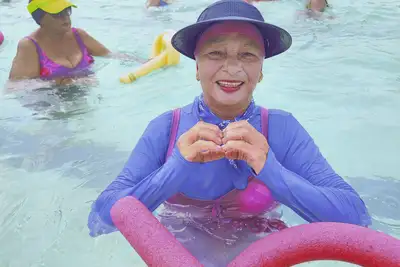
Maria is one of over 2,800 students served by the seven Usinas da Paz in the Metropolitan Region of Belém. In the interior, cities like Capanema, Tucuruí, Marabá, and Bragança also offer similar activities in their Usinas da Paz.
The Usina da Paz, by the way, is one of the projects of the current state administration that most benefits the elderly throughout the State. The initiative reaffirms the commitment of the government of Pará to guarantee rights and improve the quality of life for the approximately 1.1 million elderly people living in the State, according to IBGE data. They represent, therefore, 12.9% of the Pará population. This important segment of society is remembered on this October 1st, National Day of the Elderly.
Sports and Leisure that Transform Lives
Physical educator Willian Souza, responsible for the classes of Mrs. Maria Benedita, emphasizes that the benefits go beyond physical health. "Most come by medical recommendation, but here they gain self-esteem, relieve stress, improve sleep, and make friends. This makes all the difference in these people's lives," he highlighted.
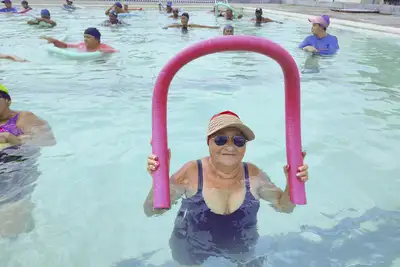
Retiree Maria Damiana, 73 years old, transformed her routine after the inauguration of the Usina da Paz Cabanagem. "After retiring, I found in the Usina a way to stay active. Today, water aerobics is part of my life and guarantees me health and longevity," she said.
Rozali Siqueira Bonasser, 71 years old, is a student of water aerobics at the Usina da Paz Jurunas/Condor. For her, participating in these activities means much more than taking care of her health. "Here we socialize, learn, make friends, and feel that there is still so much to live and contribute," she says, with a sparkle in her eyes.
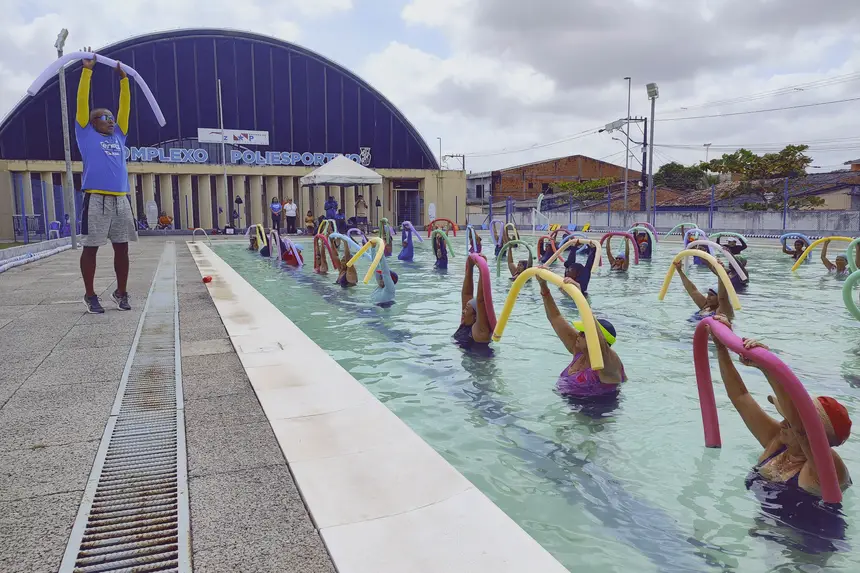
In addition to water aerobics, the Usinas offer training courses from the State Secretariat of Science, Technology, and Higher, Professional, and Technological Education (Sectet), in areas such as gastronomy, sewing, and computer science. Complementing these actions, the Active Life Program for the Elderly, implemented since 1999 by the State Secretariat of Sports and Leisure (Seel), offers activities such as dance, yoga, stretching, functional training, and memory exercises. In Belém and Ananindeua alone, over a thousand elderly people benefit from centers like Tuna Luso Brasileira and the Association of Employees of the Legislative Assembly of Pará.
Health in Network
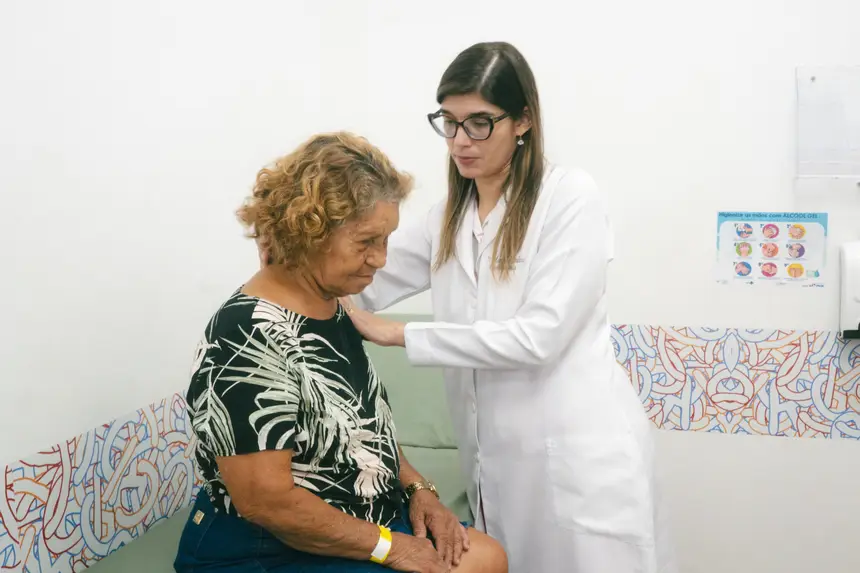
In the health area, the State Secretariat of Public Health (Sespa) ensures comprehensive care for the elderly population through the Health Care Network (RAS). From July 2024 to June 2025, over 4.8 million services aimed at the elderly were provided, including consultations, diagnoses, surgeries, and preventive actions. The service includes the "Better at Home" program and units like the CIIR, a reference in rehabilitation.
Education that Gives Meaning to Life
Education has also been a tool for transformation in the lives of the so-called elderly population. Throughout the State, more than 385 elderly people over 60 years old are currently enrolled in classes of Youth and Adult Education (EJA), offered by the State Secretariat of Education (Seduc). The program guarantees not only the right to learn but also new life perspectives for those who believed they no longer had this opportunity.
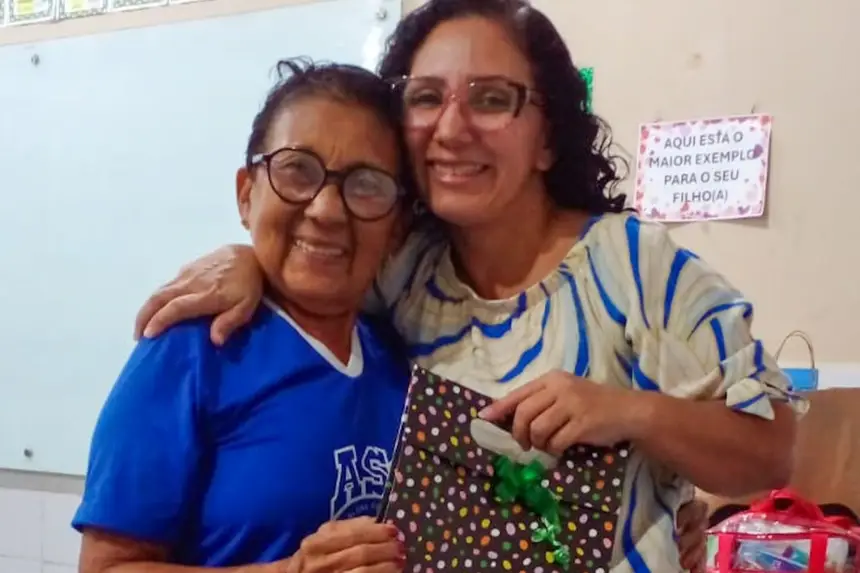
One of these stories is that of Maria Odete Ruivo, 72 years old, a student at the Américo Souza de Oliveira State School in Belém. Married since she was very young, she had to leave school in her teenage years. It was 54 years away from school until, at the beginning of this year, she decided to return to studying as part of a new beginning.
"For me, EJA is a true rebirth. Returning to study after so long brought me back to my youth and is allowing me to learn everything I missed. In addition, it provides me with moments of interaction and exchange with other people. In my class, I am the oldest, but I feel the youngest," Maria reports.
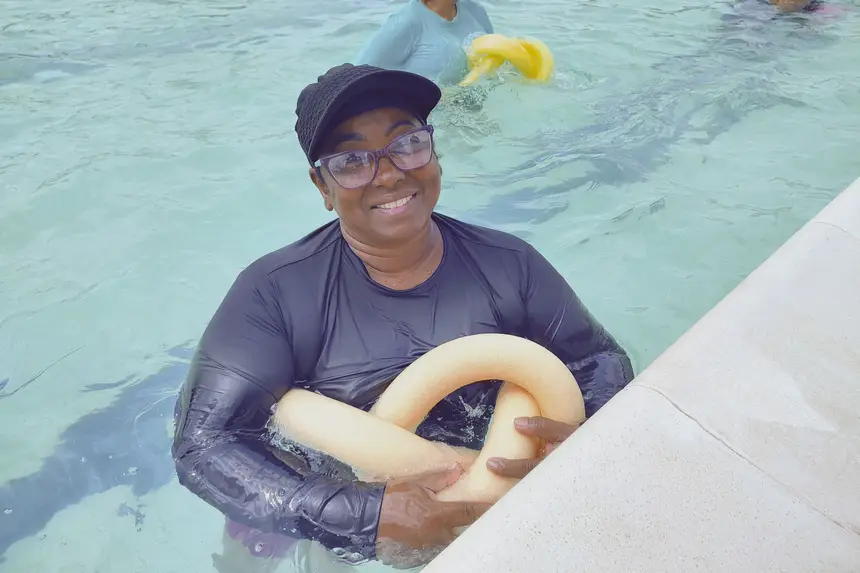
Protection and Dignity
Pará has Elderly Protection Delegacies (DPID) in Belém and Santarém. In 2024, 559 reports were registered, with a 91% resolution rate. In 2025, there are 419 records, of which 412 were investigated.
"Reports can be made by anyone, through Disque 100 or 181, with a guarantee of anonymity. Our psychosocial sector also offers support and mediation," says delegate Caroline Batista.
The DPID has psychologists and social workers who guide families and prevent violence. When there is a risk of worsening, the team acts with mediation; in cases of mistreatment of bedridden elderly or those with mobility difficulties, they visit the home and prepare a technical report.
Text: Tamiris Amorim (Secom)


